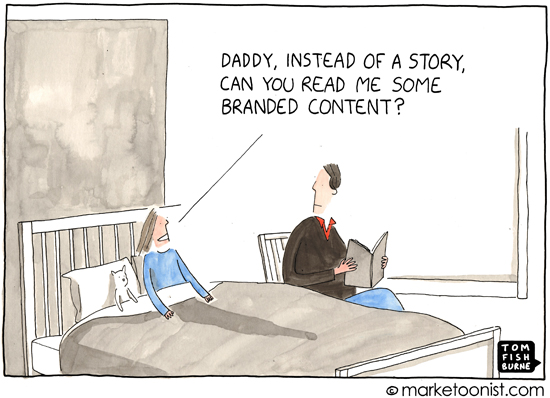Julia Brown
jb863113@ohio.edu
Ethically Wrong
Journalism and advertising have a long
and complicated history. Without ads, journalism wouldn't be able to
survive. At the same time, journalists should strive to operate
independently and without any bias from outside influences, like advertisers. If journalists bend to outside influences,
they lose their ethical credibility. But
what happens when the lines between journalism and advertising begin to blur?
Branded
Content
Recently, advertisers have come up with a clever way to make it appear as though journalists are acting independently,
but in reality, they are sending their own branded message across. Branded content is controversial, but it’s
also a growing part of modern media.
In branded content, a story is typically
written as a traditional news story, but features a specific product or service
at the pinnacle of the story. To an
inattentive reader, these stories might seem like any other news story, which
is the purpose of branded content from an advertiser’s point of view.
However, the media is supposed to be
honest and transparent in its reporting. Does this even constitute as reporting? What about accepting free promotional materials in return for a
favorable “news story” about a specific product? Are any of these actions okay?
Ethical
Journalists
For a journalist who wants to maintain
ethical integrity, none of those actions should be okay. If a reader were to read an article that is
considered branded content, or native advertising, but thinks it was written by
an independent journalist, doesn’t that defeat the purpose of honest
journalism?
As we examined earlier in the semester,
there is already a lot of distrust surrounding journalists. Should the media really heighten that distrust
or play into the stereotype – now made famous by Donald Trump – of the corrupt
media? Without independent reporting,
what integrity would we have left?
 |
| Photo from: https://marketoonist.com/2013/09/branded-content.html |
Branded
Content Business Model
Jonah Peretti, the CEO of Buzzfeed, has said that 100 percent of Buzzfeed’s revenue comes from branded content. This statistic is not surprising when you
consider articles like, “Which Donut Are You?,” which advertised Dunkin’ Donuts
and “11 Jokes Only “Call Of Duty” Fans Will Get” for Call of Duty.
Perhaps, as branded content becomes more
and more popular among media outlets, consumers should come to expect and be
aware of branded content. In that case,
however, we should change our codes of ethics to exclude independence and
transparency and include clauses about branded content.
On his show “Last Week Tonight,” John
Oliver considers the separation between advertising and editorial, otherwise
known as the separation between church and state, the heart of news media. I would agree with that sentiment. Without truth and transparency, news media is
left with little credibility and little true reporting.
There is a reason that transparency and
independence are included in codes of ethics, like that of the Society of
Professional Journalists. Nobody wants
to read sponsored content all the time – nor should they be forced to. If every article written becomes native
advertising, consumers will begin to drop faster than that publication’s
morals.
No comments:
Post a Comment